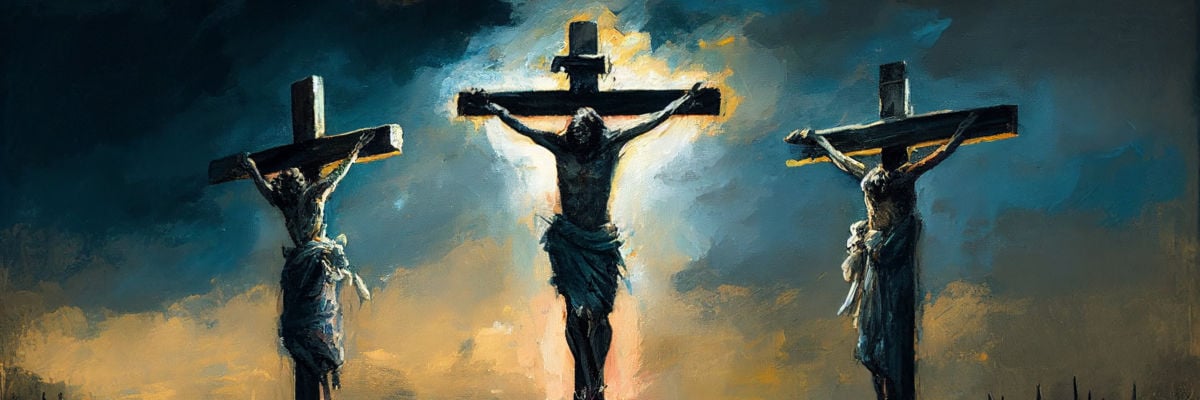
DAY 275
CHALLENGE
“The Gospels say that Jesus was crucified between two robbers (Matt. 27:38; Mark 15:27), but this is inaccurate. We know that the ancient Romans only crucified people who committed acts of rebellion.”
DEFENSE
Romans did crucify robbers, but these two were likely rebels.
Robbery isn’t the same as theft. Theft is taking someone’s property, but robbery is taking it by force. There’s an inherent element of violence in robbery that differentiates it from theft.
When robbery is committed on water, it’s called piracy. Pirates are robbers who travel by water, and we know the Romans sometimes crucified pirates. For example, as a young man and before he was a political leader, Julius Caesar was kidnapped by pirates and held for ransom on an island. “But after his ransom had come from Miletus and he had paid it and was set free, he immediately manned vessels and put to sea from the harbour of Miletus against the robbers. He caught them . . . and crucified them all, just as he had often warned them on the island that he would do, when they thought he was joking” (Plutarch, Life of Julius Caesar 2:5–7).
Because of the violence inherent in robbery, it often blended into rebellion. Gangs of robbers would hide in the countryside, taking valuables from both locals and travelers by force, and the political authorities would send men to battle them. Alternately, political revolu- tionaries would hide out in the countryside, taking what they needed from others by force, and the political authorities would pursue them.
Either way, robbery was associated with battling the political authorities, and thus there was a single Greek word to describe a person who did these things: lēstēs. It can be translated either “robber, high- wayman, bandit” or “revolutionary, insurrectionist, guerrilla” (Bauer, Arndt, Gingrich, and Danker, A Greek-English Lexicon of the New Testament and Early Christian Literature, s.v. lēstēs).
This is the word used for the two “robbers” crucified with Jesus. It’s also used to describe Barabbas (John 18:40), “who had been thrown into prison for an insurrection started in the city, and for murder” (Luke 23:19; cf. Mark 15:7).
Scholars have suggested that, as a “notorious prisoner” (Matt. 27:16), Barabbas led the insurrection and the two “robbers” were his followers. Originally, Barabbas their leader would have been crucified between them, but Jesus took his place.



